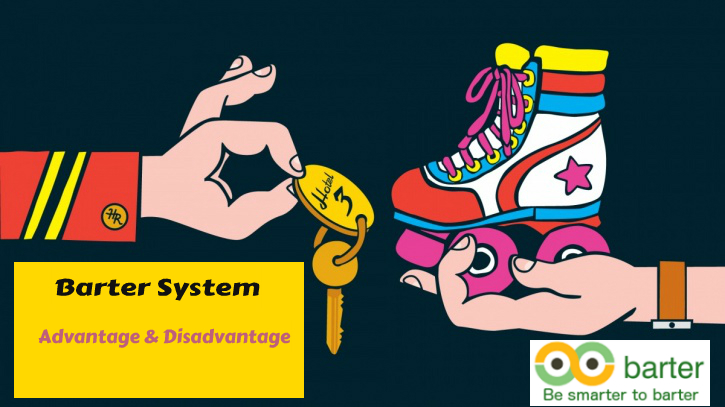Introduced by Mesopotamia tribes, bartering was adopted by Phoenicians. Phoenicians bartered goods to those located in various other cities across oceans.
- fxopen forex broker review.
- buy options or stock.
- Barter Economy - Economics Help!
- The History of the Trade and Barter System.
- 5 Advantages of Barter System – Swap Deal.
- What is a barter system? What are its drawbacks? - GK Q&A.
Goods were exchanged for food, tea, weapons, and spices. At times, human skulls were used as well. Salt was another popular item exchanged.
Advantages And Disadvantages Of Barter System
In the Middle Ages, Europeans traveled around the globe to barter crafts and furs in exchange for silks and perfumes. Colonial Americans exchanged musket balls, deer skins, and wheat. When money was invented, bartering did not end, it become more organized. Due to lack of money, bartering became popular in the s during the Great Depression.
It was used to obtain food and various other services. It was done through groups or between people who acted similar to banks.
Barter System vs. Currency System: What's the Difference?
Just as with most things, there are disadvantages and advantages of bartering. A complication of bartering is determining how trustworthy the person you are trading with is. The other person does not have any proof or certification that they are legitimate, and there is no consumer protection or warranties involved.
This means that services and goods you are exchanging may be exchanged for poor or defective items. You would not want to exchange a toy that is almost brand new and in perfect working condition for a toy that is worn and does not work at all would you? It may be a good idea to limit exchanges to family and friends in the beginning because good bartering requires skill and experience.
Barter - Wikipedia
People used to exchange goods with each other to satisfy their wants. Barter Exchange refers to exchange of goods for goods. For example, when a farmer gives wheat and gets cloth from the weaver in return, it is known as barter exchange. Double Coincidence of Wants refers to the simultaneous fulfillment of mutual wants of buyers and sellers.
Barter System - Advantages and disadvantages
In the above example, want for clothing by the farmer coincides with the want of weaver for wheat. However, it is very difficult to find double coincidence of wants in real life. With rise in economic activities, the exchange through barter became more difficult and complicated. Let us discuss the various limitations of Barter Exchange.

Lack of a Common Measure of Value 3. Indivisibility of Certain Goods 4. Difficulty in Storing Value 5.
Difficulty in Making Deferred Payments 6. Lack of Specialization. The functioning of the barter system requires a double coincidence of wants on the part of those who want to exchange goods or services. It is necessary for a person who wishes to trade his good or service to find some other person who is not only willing to buy his good or service, but also possesses that good which the former wants.
For example, suppose a person possesses a horse and wants to exchange it for a cow. In the barter system he has to find out a person who not only possesses a cow but also wants a horse. The existence of such a double coincidence of wants is a remote probability.
Often the horse-owner would have to carry through a number of intermediary transactions. He might have to trade his horse for some sheep, sheep for some goats and goats for the cow he wants. To be successful, the barter system involves multilateral transactions which are not possible practically. Consequently, if the double coincidence of wants is not matched exactly, no trade is possible under barter. Thus a barter system is time-consuming and is a great hindrance to the development and expansion of trade.
